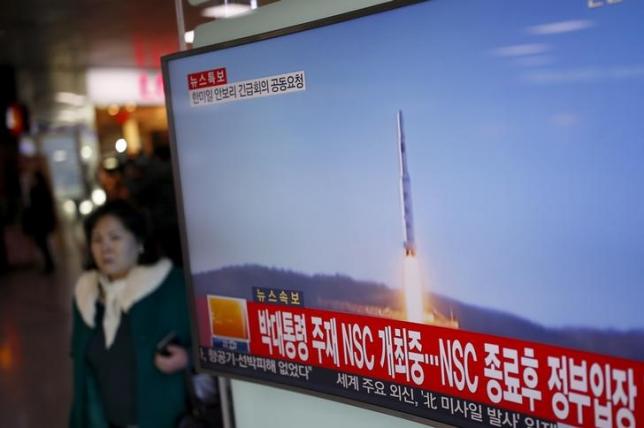
North Korea, which conducted its fourth nuclear test last month and launched a long-range rocket on Saturday, could begin to recover plutonium from a restarted nuclear reactor within weeks, the director of U.S. National Intelligence said on Tuesday.
James Clapper said that in 2013, following its third nuclear test, North Korea announced its intention to “refurbish and restart” facilities at its Yongbyon nuclear complex, to include the uranium enrichment facility and its graphite-moderated plutonium production reactor shut down in 2007.
“We assess that North Korea has followed through on its announcement by expanding its Yongbyon enrichment facility and restarting the plutonium production reactor,” Clapper said in prepared testimony to the Senate Armed Services Committee.
“We further assess that North Korea has been operating the reactor long enough so that it could begin to recover plutonium from the reactor’s spent fuel within a matter of weeks to months,” he said in his annual Worldwide Threat Assessment.
North Korea has used its graphite-moderated reactor at Yongbyon as a source of plutonium for its atomic bombs. It tested a fourth nuclear device on Jan. 6.
North Korea said in September that Yongbyon was operating and that it was working to improve the “quality and quantity” of weapons which it could use against the United States at “any time.”
Clapper said North Korea’s nuclear weapons and missile programs would “continue to pose a serious threat to U.S. interests and to the security environment in East Asia in 2016.”
He said North Korea had expanded the size and sophistication of its ballistic missile forces and was also “committed to developing a long-range, nuclear-armed missile that is capable of posing a direct threat to the United States.”
Clapper said Pyongyang had publicly displayed a road-mobile intercontinental ballistic missile, or ICBM, on multiple occasions, and the U.S. assessment was that it had taken initial steps toward fielding the system, although it had not been flight-tested.
North Korea said that it launched a satellite into space on Saturday with a long-range rocket. The United States and its allies see the launch as cover for Pyongyang’s development of ballistic missile technology that could be used to deliver a nuclear weapon.
The launch was strongly condemned by the United States, its allies and the United Nations Security Council.
REUTERS








